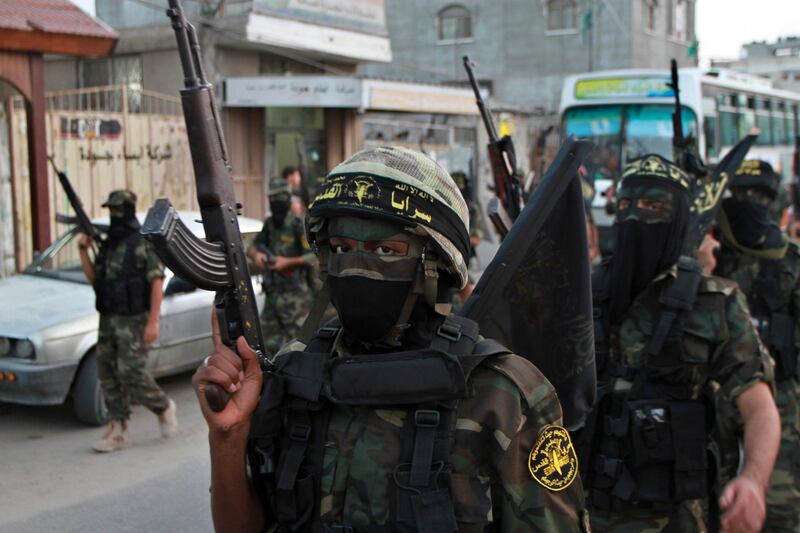Founded 40 years ago, Palestinian Islamic Jihad has operated from bases in Gaza, Lebanon and Syria, largely free from the constraints of having to govern or offer leadership.
Sponsored by Iran and Syria and with ties to Hamas, the group is said by the US to have as few as 1,000 members but is nevertheless seen as a threat to Israel.
The assassination of its senior commander Baha Abu Al Atta at his home in Gaza yesterday by Israel might remove what the latter calls a "ticking bomb" but it will do nothing to calm tensions between Israel and the Gaza Strip; it will instead ramp them up, with threats of retaliation and rocket fire on both sides.
The Israeli strikes yesterday, which also targeted the Damascus home of Akram Al Ajouri, a senior figure of the PIJ, killing his son Muadh and one other person, come just days after hardline politician Naftali Bennett was appointed the country’s new defence minister.
Al Atta was singled out because he was thought to be behind several cross-border attacks, sometimes in co-ordination with Hamas. The Israeli military also blamed him for recent rocket, drone and sniper attacks as well as attempted infiltrations into Israel.
PIJ, the second-largest armed faction in Gaza, was founded as an offshoot of the Muslim Brotherhood but its loyalties lie firmly with Iran, which has funded and trained it since the 1980s.
After the organisation’s leaders were exiled from Gaza in 1987, they relocated to Lebanon and began fighting alongside their Iranian-sponsored cohorts Hezbollah. Some leaders moved on to Syria and when war erupted nearly nine years ago, they put to use the training they received from the Quds Force of Iran’s Islamic Revolutionary Guard Corps to help prop up the regime of Bashar Al Assad.
While most PIJ members are trapped in Gaza, its leaders have bases across the region, which has given Israel an excuse to carry out strikes in Syria and pound Gaza with rockets amid claims of safeguarding its own security.
Israeli rocket fire has been met with retaliatory strikes from militants in the Gaza Strip. Israel might view the PIJ killings as a victory but in reality, it is perpetuating an endless cycle of bloodshed.
Since its creation, the PIJ has claimed that its goal is to destroy Israel and give Palestinians a country, carrying out suicide bombings, attacks on civilians and firing rockets into Israel to achieve this aim. But instead of giving Gazan youth the dignity and freedom they deserve, the PIJ has, much like Hamas, allowed foreign powers to entrench themselves in the poverty-stricken strip.
Employment opportunities and access to basic services are in short supply for nearly two million Gazans living in what is effectively an open-air prison. Since 2007, the blockade on the Gaza Strip has resulted in a crippling financial crisis, pushing more than half of Gazans below the poverty line.
These appalling living conditions are a direct result of the Israeli occupation of Palestinian territories and have empowered groups such as Hamas and the PIJ to sell disenfranchised Palestinian youth a dream of a better tomorrow, in exchange for their loyalty and, sometimes, even their lives. The PIJ has not shied away from resorting to suicide bombings, putting Palestinian lives in danger and implementing orders from Iran when it claims to be protecting them. Tehran, meanwhile, bemoans the loss of Palestinian lives when it is an accessory to violence.
The Palestinian-Israeli conflict cannot be resolved with more brutality. Bloodshed will instead put more innocent lives at risk while right-wing Israeli politicians in power and extremist factions in Gaza flex their muscles to garner popularity.





